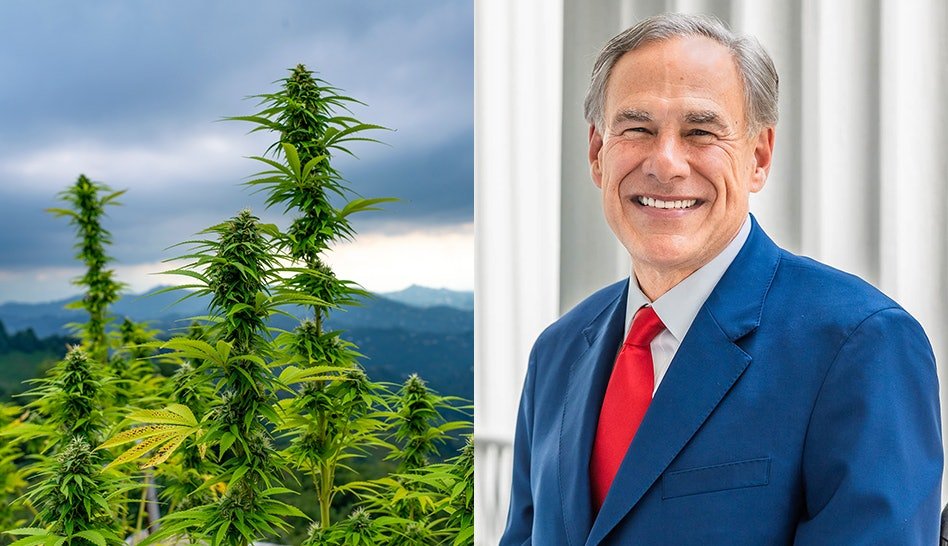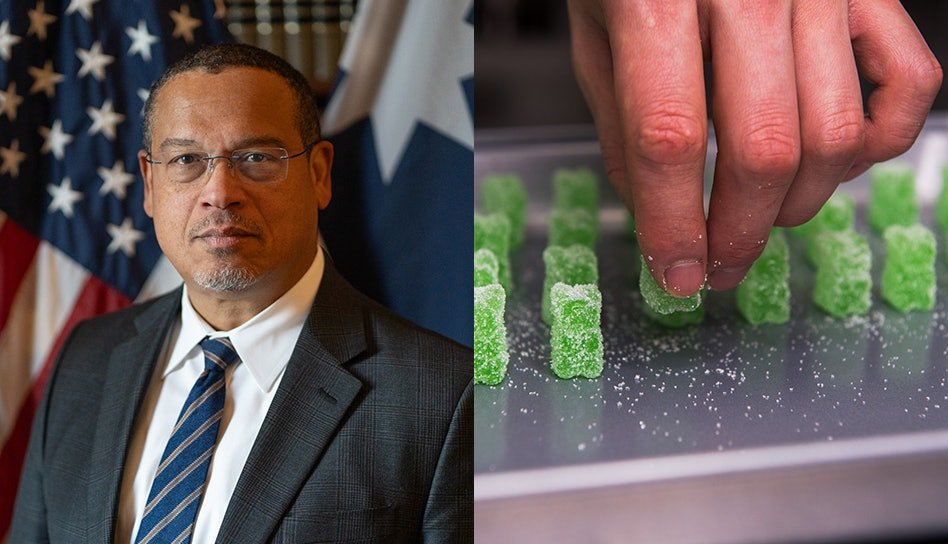
Attention Required! | Cloudflare
June 2, 2025
Quantum Manifestation Code – New Law Of Attraction Offer!
June 2, 2025
Texas Gov. Greg Abbott has until June 22 to sign, veto or allow legislation to become law without his signature for bills that arrived at his desk in the final 10 days of the legislative session. This year, that includes a pair of industry-defining bills for medical cannabis and hemp.
The Texas Legislature, which adjourned June 2, sent Abbott Senate Bill 3 to ban intoxicating hemp products on May 27 and House Bill 46 to expand the state’s medical cannabis program on June 1 (more on H.B. 46’s latest developments are below).
S.B. 3 intends to prohibit consumable hemp products containing any amount of THC or other intoxicating cannabinoids. Only nonintoxicating CBD or CBG hemp products would be allowed to be manufactured and sold under the legislation.
More than 100,000 petition signers and thousands of stakeholders in Texas’ roughly $8-billion hemp marketplace that supports approximately 50,000 workers and 8,000 retailers are urging Abbott to veto this legislation.
Lt. Gov. Dan Patrick, who spearheaded the bill as the presiding officer in the Senate, held a press conference on May 28 in which he accused the media of not taking “this issue seriously” and the Texas hemp industry of selling intoxicating products to children for the sake of profit.
“It’s all sold for kids,” Patrick said. “They want to hook our generation of young people today for a lifetime of drugs. … These are bad actors. These are people that want to kill your kids. And they don’t give a damn.”
The lieutenant governor’s testimony directly contradicts his own experience in March 2025 at Austin-based hemp retailer Happy Cactus, where he was carded by a store employee who asked the 75-year-old to prove he was at least 21 years old.
During last week’s press conference, Patrick displayed a table of various hemp-derived products, claiming their labels were inaccurate while also saying they contained more than the allowable 50 milligrams of THC per serving allowed under current Texas law.
Meanwhile, Abbott has been silent about his stance on S.B. 3 other than to say that he plans to review the legislation when it arrives at his desk. However, Patrick indicated during the press conference that he was confident that the governor would sign the bill, making hemp THC products illegal in Texas come September 2025.
“I’m not worried about the governor,” Patrick said. “I speak with the governor every day. Look, I’m not going to speak for the governor, OK? He will do what he’s going to do. I have total confidence in the governor. You will know his decision when he makes it.”
Patrick also scolded various media members during the conference, including a reporter who asked why Texas couldn’t tightly regulate consumable hemp products rather than ban them. The lieutenant governor responded by saying, “That’s crazy talk,” adding that that’s the reason he called the press conference—to address a narrative of the “media that would say something as stupid as that.”
Despite Patrick’s finger-pointing, the majority of states that have taken recent legislative actions on consumable hemp products have incorporated more permissive regulatory approaches over broad prohibition.
Another reporter asked why the lieutenant governor would call a press conference to focus on a bill that already passed the Legislature when there was still work to be done on other bills in the closing days of the legislative session.
Patrick said while there are a lot of important bills in Texas, nothing is more important than stopping a kid from getting ahold of “this junk,” as he held up and shook a bag of edibles.
“There’s a tremendous onslaught of pressure from an $8-billion industry that has unlimited money, and they’re trying to poison the story to stop this from happening,” Patrick said. “Most of you in this room have bought into a lot of their story. ‘Oh, it’s going to cost jobs; it’s going to impact the economy; it’s an $8-billion industry. Oh, my goodness, what’s going to happen? People are going to be hooked on drugs, having to go somewhere [else] when all this goes off the shelves.’ You all are part of the problem, quite frankly, because you’re not telling the story.”
Medical Cannabis Expansion
Texas lawmakers also came to a last-minute agreement to pass H.B. 46 in a conference committee on June 1 to expand the Texas Compassionate Use Program (TCUP) for medical cannabis. TCUP was established in 2015 and modestly expanded in 2019 and 2021.
The 2025 Legislature developed a conference committee over the weekend after the House refused to concur with Senate amendments to H.B. 46 on May 30.
The finalized legislation in the conference committee report, in part, would expand the state’s low-THC medical cannabis program to:
- replace the current 1% THC cap with a 10-milligram per dosage unit limit;
- place a 1-gram THC limit on product packages, containers and medical cannabis devices for pulmonary inhalation;
- allow doctors to prescribe a 90-day supply of low-THC cannabis with up to four refills per year;
- ensure patient confidentiality in the state’s program registry;
- allow absorption, insertion, and aerosolized or vaporized inhalation (not smoking) as allowable medical uses (in addition to ingestion);
- add chronic pain, traumatic brain injury, terminal illness, and hospice or palliative care as qualifying conditions;
- increase the number of licensed businesses to 15; and
- allow satellite locations for licensees to store and distribute products more efficiently throughout the state.
Although the House conferees agreed with the Senate’s version to redefine low-THC cannabis with the 10-milligram per dosage unit limit for most product options, the committee adopted the House’s version of the bill that still includes a 1% THC cap by weight for substances to be aerosolized or vaporized.
The legislation assigns the executive commissioner of the Texas Health and Human Services Commission to adopt rules related to medical devices for pulmonary inhalation as a new means of administration under the bill. Ingestion (edibles, beverages, tinctures) is the primary administration method under current Texas law.
While chronic pain, terminal illness, and hospice or palliative care were included in both the Senate and House versions, the conference committee agreed to reinsert the House proposal to add traumatic brain injury as a qualifying condition in the finalized version. The House had also proposed glaucoma, spinal neuropathy, Crohn’s disease, degenerative disc disease, and any condition impacting an honorably discharged veteran, but those were omitted by the Senate and by the bicameral conferees.
These conditions are all in addition to the state’s current nine-condition list.
Under H.B. 46, the Texas Department of Public Safety (DPS) could request that the Legislature add qualifying conditions by providing lawmakers with “medical evidence” that shows the condition is treatable with medical cannabis.
Meanwhile, the finalized bill also requires the DPS to increase the number of licensed businesses from three to 15 to address a consumer access issue in the nearly 270,000-square-mile Lone Star State.
These vertically integrated licensees, referred to as “dispensing organizations,” would be allowed to operate no more than one satellite location in each of the state’s 12 public health regions to securely store and distribute low-THC medical cannabis.
In addition to the three existing licenses, the DPS will be responsible for awarding at least nine new licenses by Dec. 1, 2025, and another three by April 1, 2026, through a competitive application process. The first nine licenses will be awarded from a pool of roughly 150 applicants who had applied with the DPS in early 2023, while the latter three licenses will be awarded to those who submit applications at any time.
A dispensing organization must be operational within 24 months after being issued a license, or the DPS could rescind that license.
Like S.B. 3, Abbott has 20 days to consider signing or vetoing H.B. 46 before it automatically becomes law. The effective date of the bill would be Sept. 1, 2025.





